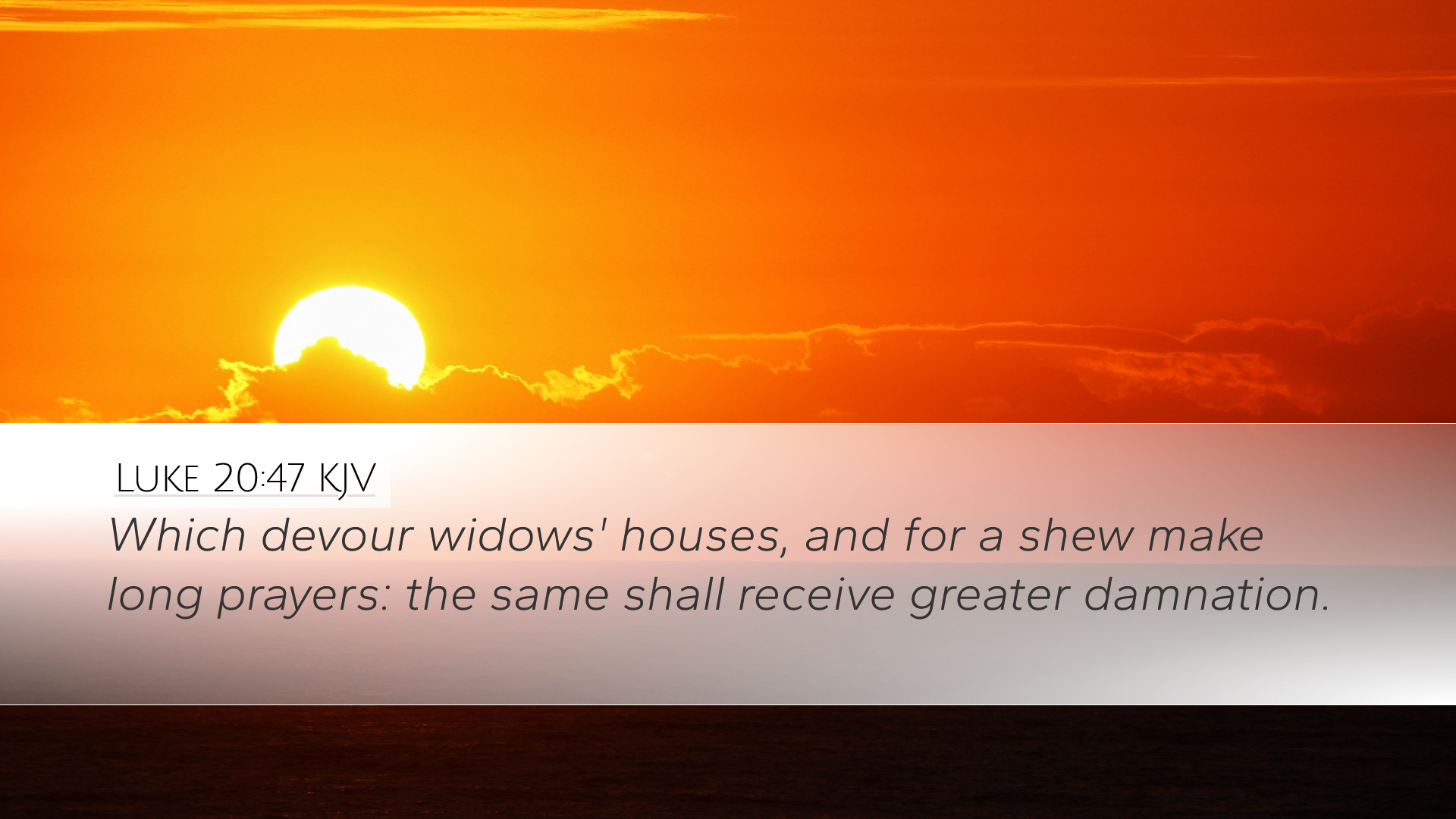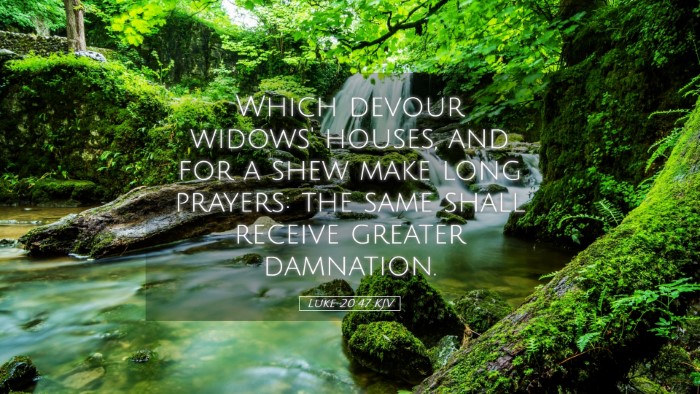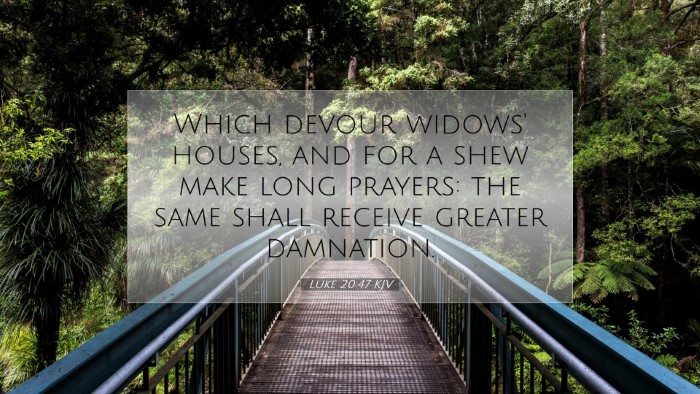Commentary on Luke 20:47
Verse: "Which devour widows' houses, and for a show make long prayers: the same shall receive greater damnation."
Introduction
This verse is part of a discourse where Jesus addresses the hypocrisy and the moral failings of the religious leaders of His time. It serves as a profound warning about the consequences of exploiting the vulnerable while masquerading behind a facade of piety.
Contextual Background
In the Gospel of Luke, Jesus often confronts the religious elite, highlighting their failures in understanding true spirituality and compassion. Luke 20 is a pivotal chapter where Jesus is in the temple, responding to challenges from the chief priests and scribes.
Commentary Insights
Matthew Henry's Commentary
- Hypocrisy Exposed: Henry emphasizes that the scribes, who were teachers of the law, often exploited their position to gain advantage over the innocent. They were guilty of taking advantage of widows, who in that society were among the most vulnerable.
- Long Prayers: Their long prayers were not sincere but rather theatrical displays meant to showcase their supposed piety. This exposes a deep-seated hypocrisy, emphasizing that outward appearances were prioritized over genuine spirituality.
- Greater Damnation: Henry underscores the severity of their judgment, suggesting that those who knowingly lead others astray or take advantage of the defenseless will face greater condemnation before God.
Albert Barnes' Notes
- Devouring Widows' Houses: Barnes elucidates the term "devour," suggesting it indicates complete dispossession. The actions of the scribes went beyond mere neglect; they actively consumed the resources and rights of the widows under the guise of religion.
- Public Perception vs. Divine Judgment: While outwardly they appeared devout, Christ points out that their hearts were far from God. This highlights the distinction between human judgment based on appearances and divine judgment based on intentions and actions.
- Greater Accountability: Barnes notes that those placed in positions of leadership or authority within the church bear a heavier responsibility. Their actions influence others, and as such, their condemnation will be proportionally greater.
Adam Clarke's Commentary
- Devour Widows' Houses: Clarke interprets the exploitation of the widows as a reflection of the underlying greed and moral corruption prevalent among the religious leaders. He emphasizes that instead of providing protection and support, they preyed on the helpless.
- Long Prayers as Pretense: Clarke indicates that the length of their prayers was indicative of self-righteousness rather than a genuine desire to commune with God. Their prayers were a performance for public approval rather than true expressions of faith.
- Consequences of Actions: Clarke similarly echoes the theme of greater punishment for those who misuse their influence, implying that this serves as both a warning and a call to accountability for leaders within the faith.
Theological Implications
This verse challenges the church today to examine its own leaders and practices. The call for authenticity in spirituality is echoed throughout Scripture. It serves as a reminder that true faith manifests in actions of compassion and integrity, particularly towards the marginalized, such as widows and orphans, who are emphasized throughout biblical texts.
Conclusion
Luke 20:47 serves as a sobering reminder of the dangers of religious hypocrisy. It compels both leaders and laypersons to ensure that their faith and actions align with the teachings of Christ. In a world filled with injustices, the church is called to be a beacon of hope and advocacy for the powerless, embodying a faith marked by love and integrity.


